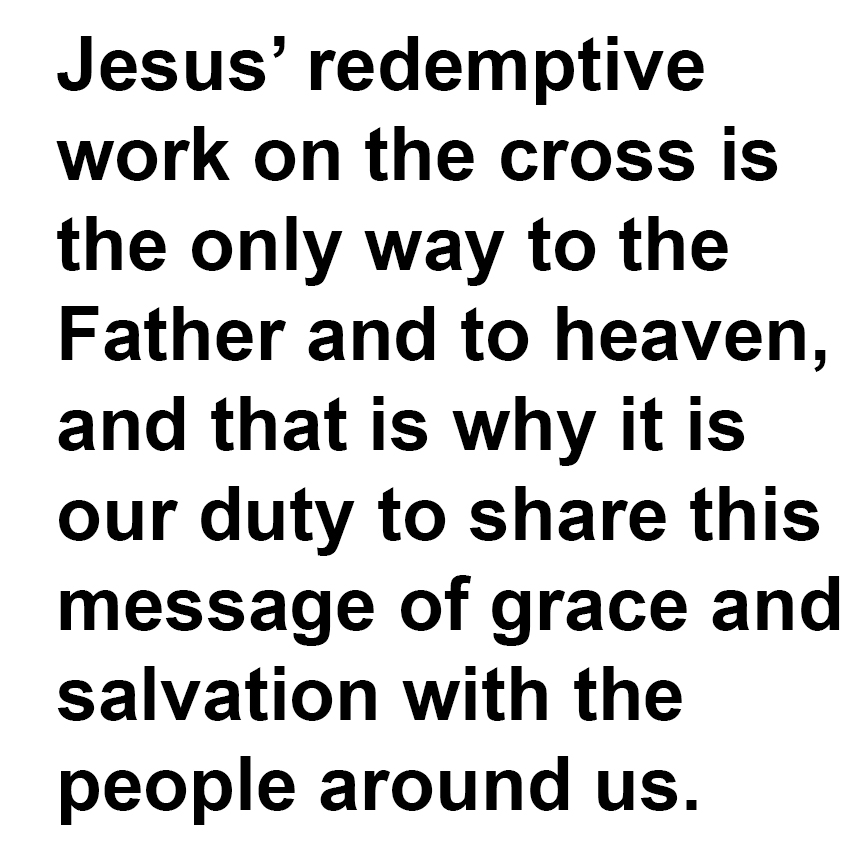At Renewal 2027 – Transformed by the Word: Reading Scripture in Anabaptist Perspectives in Augsburg, Germany 12 February 2017, the YABs committee (Young AnaBaptists) reflected on Matthew 28:19–20 from their local perspectives. The columns in this section have been adapted from their presentations.
This text is a commission from Jesus to his disciples. Jesus wanted the gospel to reach all nations and for that he decided to use people. In the first instance, he used his disciples. These, in turn, made more disciples, who had the same charge: “to go and make disciples.” Thus, the mission of the church, as a group of disciples of Christ, was to reach other people with the good news.

The word “go” is active. Jesus did not say, “Wait for me to send you people to make disciples,” but said, “Go and make disciples.” Therefore, if the disciple of Christ wants to make more disciples, he or she needs to be proactive. Instead of waiting for other people to approach the church, we need to go into the world to share the good news with our neighbours.
Now the question is, how am I going to share the good news with the people around me?
There are several methods for evangelism. The three most well-known and used in South America are house-to-house evangelism, mass evangelism and friendship evangelism. Each of these methods has advantages and disadvantages, especially when considering the time and depth of work. However, all are valid methods that can be used according to context and need.
In the case of the Mennonite Brethren church of Paraguay, a method used is that of social impact. The church members are dedicated to establishing homes for needy children; starting hospitals, schools and churches – always depending on the need of the area. In addition, the church established a radio station to transmit the gospel and Christian values.
Through these organizations, we seek to provide a basic service to the people around them, so that we can share the gospel with them.
One method used in our youth group and in some other churches in Paraguay is soccer. In Paraguay, you can not play volleyball, basketball or baseball; there is only “football” – and everyone plays it! That is why some churches, including ours, choose to play soccer on Saturdays and in the evenings on Sunday to attract people. The primary purpose of these event is not to listen to a preaching or to sing spiritual songs but to play football and to make friends with new people. We hope that these people will then be encouraged to go to youth meetings and accept Christ as their Saviour.
When these people feel comfortable with the community, they are invited to youth meetings or a Bible study group. Sometimes they also come on their own. Some of these people accept Christ as their Saviour through a friend, others during a worship service or camp.
In Latin America we believe that evangelization must be adapted to the culture and context in which each church lives. Regardless of the method, believers are motivated to naturally and actively transmit their personal faith in Christ.
For us, evangelizing does not mean being intolerant. We believe that Jesus’ redemptive work on the cross is the only way to the Father and to heaven, and that is why it is our duty to share this message of grace and salvation with the people around us.
—Dominik Bergen, a member of the Mennonite Brethren church in Paraguay, represented Latin America on the YABs committee from his appointment at the Global Youth Summit with Assembly 16 in Harrisburg, Pennsylvania, USA, in July 2015 until the Executive Committee meetings in Augsburg, Germany. Embarking on seminary studies in Germany, he stepped down from his position to ensure local representation for Latin America. Oscar Suàrez from Colombia is now the Latin America representative.